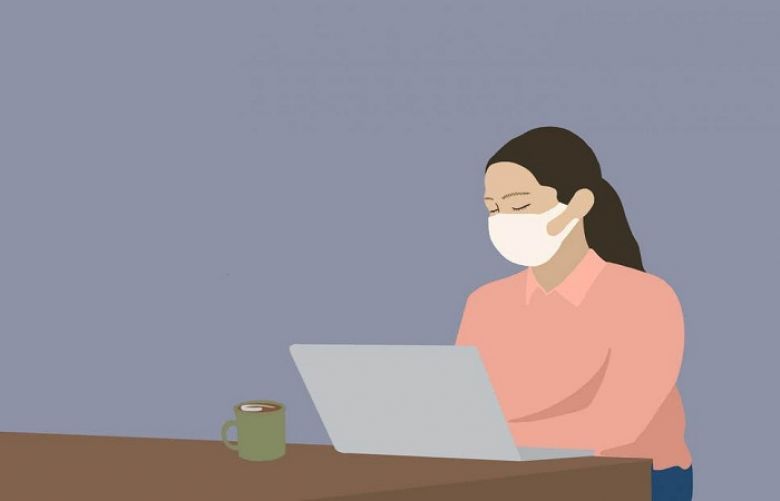The number of confirmed coronavirus cases in the UK has reached 1,372 and 35 people are dead. UK's Health secretary Matt Hancock has also said all over 70s could be asked to self-isolate at home for a period of months in a bid to curb the further spread.
Despite the obvious seriousness of the situation it is important to keep the threat in perspective (during the 2017-2018 UK flu season there were 26,408 deaths and 1,692 in 2018-2019) and it is estimated only 2 per cent of those who catch coronavirus will die.
In comparison SARS had a mortality rate of more than 10 per cent
The World Health Organisation and Public Health England have also warned there is no need to panic-buy face masks, latex gloves or other extreme protective gear if you practice good basic hygiene like regularly washing your hands and covering your mouth and nose if you cough.
Of course for many it is still hard to not worry about what is going on and what the future holds.
Dr Michael Sinclair, a consultant psychologist, tells The Independent: “It is understandable there should be a level of concern. Our minds evolved from cave ancestors to worry: we focus on doom and gloom, we chew it over in our brain and we learn new survival skills. That is our mind just doing what it is meant to do.”
Psychotherapist Silva Neves agrees but warns “panic, too, is contagious”.
So what do you do if health-related anxiety has started interfering with day-to-day activities, if you’re finding yourself struggling to go to work or socialise in crowded places for fear of catching the coronavirus?
Don’t always listen to your mind
“Listen to what your mind says is there and then look at the evidence for what is really there,” says Dr Sinclair. “We need to recognise that it is often a story our mind is telling us, not the reality.
“Try to do this by, for example, instead of saying ‘I’m going to get ill’ say ‘I’m having the thought that I’m going to get ill’ to emphasise this is your mind telling you that not reality.”
Mr Neves adds: “We have control over how much we think about it. We do have control over our thoughts, although it is hard work sometimes to control them. Worrying about it won’t guarantee a better outcome. So try to allocate some brain space for other important things too.”
Don’t try to ignore physical symptoms of stress
“Sometimes we can make ourselves feel unwell (and like we might have something like coronavirus) through panic and anxiety – those signs; shortness of breath and heart racing,” says Dr Sinclair. “But when this happens, instead of trying to immediately eradicate or ignore those feelings, which won’t help, make space for them, describe them as you experience them.”
Mr Neves says in moments of panic you should try to take a few breaths; sit down and count your breath in and out for 10 seconds. Then repeat.
Keep a record of your worries
Elizabeth Turp from the British Association for Counselling and Psychotherapy (BACP) says you can do something practical – something you can control – to help express anxiety. She suggests writing a journal or notebook.
“Allow yourself to worry, put it down in writing in a notebook, and then put that away. Once you’ve written it down, let it go,” she says.
You can also try drawing two circles – a circle of control and a circle of no influence – and fill them with things in your life that you worry about. This helps you to remember what things you can impact and those that, no matter how much you worry, you can do nothing about.
Only consume what you can handle
Mr Neves says if you’re struggling to cope you don’t have to keep watching live news, have notifications turned on or use social media, instead limit your exposure to the new information. “You can be strict with yourself, decide to only watch the news and read an update on the virus once a day,” he says.
“I’m not suggesting you [totally] ignore it, it is serious. By all means, keep track of the development. But you can reduce your anxiety by reducing the amount of time you think about it.”
Take some practical steps
As well as managing your mind, there are simple physical steps you can take to make yourself feel reassured, like following the advice from WHO and PHE. “Do wash your hands with soap and water often, especially before you eat. Or wash your hands with alcohol gel. Follow the medical advice,” says Mr Neves.
Stay connected to your support network
Gerard Barnes, CEO of mental health specialists Smart TMS, says that in times of stress it can be easy to want to isolate ourselves (especially if we’re worried about the virus) but it is crucial to maintain human interaction if possible to reduce anxiety levels. “Maintaining strong connections will help you to feel supported and surrounded by positivity and good energy.
“You are also more likely to be able to have an open conversation about the virus with those close to you – being able to discuss the issue and perhaps make jokes about it, will help you to feel more comfortable and overcome any anxiety you may have over the threat.”
Avoid speculation and focus on facts
In a world of 24/7 rolling news and social media updates, it can be easy to get drawn into speculation and hype. But Mr Barnes says: “Try to avoid being caught up in the media storm and avoid reading excessive speculative reports. Stick to respected health-first websites, such as the NHS, to get clear, simple instructions and facts on the coronavirus and how to handle it.”
Mr Neves adds: “Remember, we can’t stop the virus spreading, only the scientific community can. But we can all help each other stop panic spreading.”

